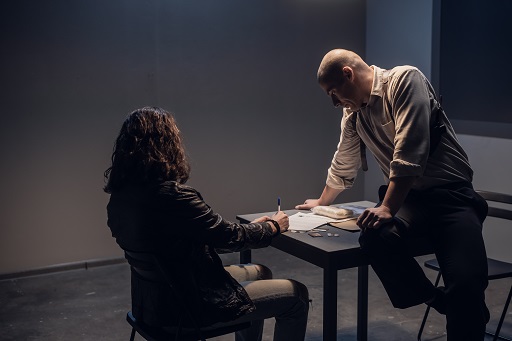2 Interrogation, suggestibility and false confessions
In many fictional portrayals of criminal investigations, the confession represents the finale of the story, and is used to reveal who the perpetrator was and demonstrate the prowess of the detective. The idea is that confessions are proof of guilt and can, therefore, be used as a narrative device to conclude a story definitively.
But are confessions always ‘true’ in reality? In this section you’ll start by exploring confessions obtained in real cases before looking at the psychology of why someone might confess.

